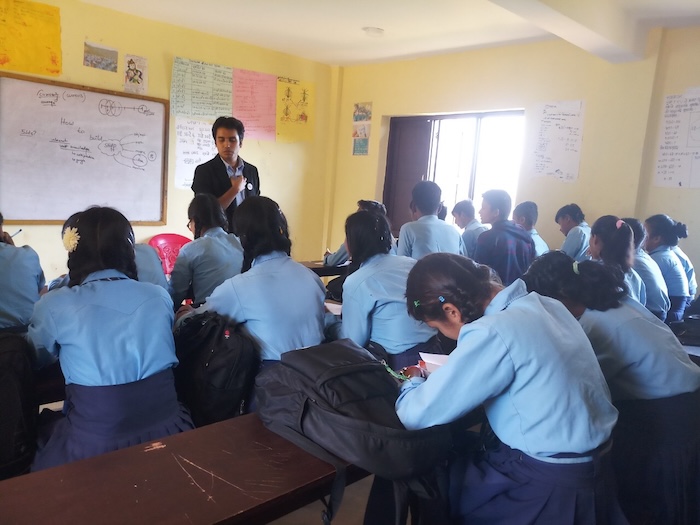The Going Abroad Scenario
August 24, 2025This is the thought process of a young student looking to go abroad without really thinking it through, simply because everyone else is doing the same. Here’s a grade 12g student from Nepal who wants to leave just because everyone else is.
Step 1: Contemplation (Thinking):
“Look how clean those streets are.”
“Everyone abroad looks so successful.”
“No load shedding, no bandhs.” (power cuts, strikes)
Step 2: Attachment (Wanting):
“That could be me.”
“I want that life.”
“I’m wasting my potential here.”
Step 3: Desire (Craving):
“I NEED to get out of Nepal.”
“All my friends are planning to go abroad.”
“I can’t be left behind.”
Step 4: Anger (Frustration):
“Why was I born in this stupid country?”
“The government is so corrupt, there’s no future here.”
“People who stay in Nepal are just settling for less.”
Step 5: Delusion (Excuses):
“I’ll figure out what I want to do once I get there.”
“Even if I’m washing dishes, I’ll be earning in dollars.”
“I’ll get respect in society once I’m settled abroad.”
Step 6: Lost Judgment:
“Computer Science in Canada, Business in Australia, whatever gets me out faster.”
“Who cares about my interests, I just need to go abroad.”
“Everyone else is doing it, so it must be right.”
Krishna’s Alternative Path:
Step 1: Conscious Contemplation (Clear Seeing):
“What are the real challenges people face there?”
“What are my actual strengths and interests?”
“What opportunities exist in Nepal that I haven’t explored?”
Step 2: Self-Inquiry (Questioning):
“Am I drawn to going abroad because of genuine career goals, or just social pressure?”
“Do I even know what I want to do with my life?”
“Why am I in such a hurry to decide?”
Step 3: Investigation (Research):
“Let me talk to people who’ve actually studied abroad about both the good and difficult parts.”
“Let me research the job market in my field of interest, both in Nepal and abroad.”
“What happens if I don’t succeed abroad? Do I have a backup plan?”
Step 4: Svadharma (Your True Path):
“What am I naturally talented at?”
“What would I choose if there was no social media to influence me?”
“What if my purpose is to contribute to Nepal’s development?”
Step 5: Detached Choice (Wise Decision):
“I will choose my path based on what’s right for me, not what will get approval from others.”
“Success is doing meaningful work that aligns with my nature, whether that’s in Nepal or abroad.”
“My happiness doesn’t depend on external validation.”
Step 6: Inner Wisdom (Gut Check):
“If I remove all external pressure, what do I actually want?”
“What would make me proud of myself in 10 years?”
“What would I choose if I couldn’t tell anyone about my decision?”
Krishna shows us that when we focus too much on attractive things or trends, we start a mental process that makes us lose our ability to think clearly. The trick is to stop this process right at the start, not try to fight it at the end.
Bhagavad Gita Chapter 2, Verses 62-63
dhyāyato viṣayān puṁsaḥ saṅgas teṣūpajāyate
saṅgāt sañjāyate kāmaḥ kāmāt krodho 'bhijāyate
krodhād bhavati sammohaḥ sammohāt smṛti-vibhramaḥ
smṛti-bhraṁśād buddhi-nāśo buddhi-nāśāt praṇaśyati
Translation: “While contemplating the objects of the senses, a person develops attachment for them, and from such attachment desire develops, and from desire anger arises. From anger, delusion arises, and from delusion bewilderment of memory. When memory is bewildered, intelligence is lost, and when intelligence is lost one falls down completely.”
